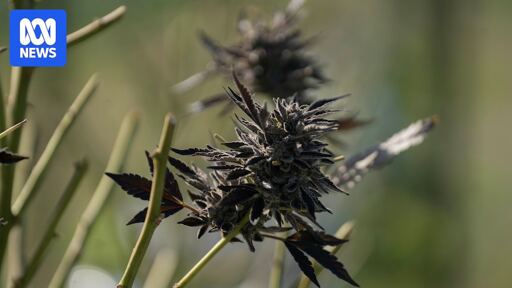The whole article is worth reading but this caught my eye.
The Australian Medicinal Cannabis Association (AMCA) said that without suspected adverse events being published and investigated it was hard to draw conclusions about the safety of medicinal cannabis products.
If the only organisation representing cannabis prescribers is unwilling to comment on safety what does that say about the state of the industry?
Just putting this here as several commentors seem to have misread my intention posting this here
Most responses here seem to assume that I’m opposed to medical marijuana, I’m not. I am in fact in favor of it’s use, appropriately, in select patients, as with any medication.
I also want to caution against conflating recreational use(which may be problematic but is usually fine) with medicinal use(which should be held to the highest standards of evidence as any medicine should).
Now, regarding the evidence to date, efficacy is well established for refractory epilepsy and spasticity in MS. It is quite well established to have a role in pain control. Evidence that it is superior to other treatments for anxiety is pretty scant, we hold antidepressants to a pretty low standard and cannabis fails to even be that good in the published studies.
In terms of safety we frequently see acute intoxication from prescribed cannabis and worsening of co-morbid mental health conditions is really common. Nausea, vomiting, diarrhoea, and abdominal pains are all fairly frequent and I have seen one case of psychosis from prescribed marijuana. What’s more, we see these more commonly in emergency departments, psych wards and GP clinics now that it is easily available from unscrupulous corporate owned clinics.
The article isn’t claiming that medical marijuana is inherently dangerous or that it doesn’t have a role in medicine. It states, correctly, that the TGA has never actually assessed the safety of the vast majority of products on the market. This is concerning for anyone who might want to prescribe these with confidence.
@givesomefucks@lemmy.world @wesker@lemmy.sdf.org @Taleya@aussie.zone @Randomgal@lemmy.ca
If the only organisation representing cannabis prescribers is unwilling to comment on safety what does that say about the state of the industry?
I’m not sure if I’m misreading your intent here? The AMCA is literally saying “If you don’t give us actual proof and studies we can’t validate or disprove them”. It’s a very different thing to “unwilling to comment on safety”
I disagree, this wording from a professional organisation is concerning. The usual standard of evidence for medication is that the companies or organisations promoting provide proof of safety.
For example ANZCA (specifically the Faculty of Pain Medicine) state
There’s a lack of definitive evidence showing long-term opioid effectiveness for CNCP, and conversely, substantial evidence of potential harm. As a result, opioids should only be considered in exceptional circumstances—for example, when other treatments have failed and the pain is demonstrably responsive to opioids.
With regards to psychotropic med the RANZCP say
Medications should be part of a comprehensive care plan that emphasizes low doses, minimal number of agents, and the shortest effective duration. Explanation of risks, benefits, and off-label use must be delivered to both young patients and their guardians. Prudence and caution are essential, though when properly prescribed, these medications can significantly improve quality of life for youth with serious psychiatric conditions.
AMCA regarding the safety of cannabis say
¯_(ツ)_/¯
As a GP I know very few doctors who don’t accept that cannabis or cannabis derived products have a role to play in medicine. I know even fewer who don’t see the recent rapid explosion of cannabis prescribing as reckless and dangerous.
As a GP are you for legalisation (similar to alcohol) or for more tightly controlled prescriptions?
Whenever this is raised the argument about legalisation for recreational use is conflated. Alcohol, cocaine, oxycodone etc all have medicinal and recreational uses and we appropriately treat then differently.
If we are using it as medicine, at a minimum we should see prescription tracking and monitoring with implications for doctors prescribing inappropriately similar to the way we treat other medications with potential for abuse.
My opinion, for what it’s worth is that there should be legalised cannabis for recreational purposes.
What we definitely shouldn’t have is a situation where I am having people turning up to my clinic expecting a prescription for recreational doses of flower to smoke.
I am prescribed medical cannabis, but I only use it occasionally when needed. I have no doubt it is over prescribed, but I’m not sure how much of a problem that is. I think many people who want it could get it on the black market if they tried. So having medical cannabis might not create more overall cannabis users.
Not every drug is suitable for every person, we are each slightly different and that’s okay. If it doesn’t work for you, don’t use it.
@HalfEarthMedic now let’s talk about alcohol-related adverse events
When prescribed as medicine, alcohol related adverse events are effectively zero
@HalfEarthMedic touche
genuinely curious, is that a thing?
I believe that ethanol infusion is still standard treatment for methanol poisoning but outside my expertise
Heavy alcoholics can’t safely quit drinking cold turkey, so may be prescribed a number of drinks a day while drying out.
In the movies, they always show the injured character take a huge swig of alcohol, and then splash it all over their fatal wound and that fixes everything, so it must be true!
On wounds :P
Many aussies think one joint will drop you into lifelong psychosis. Go to Amsterdam where its legal to buy and they just think its another part of the range of substances there.
The expectation has a lot to do on perceived effects. No way a doctor is gonna get to the bottom of expectations, same way they don’t when they prescribe other drugs with their other dependencies and side effects.
User beware.









